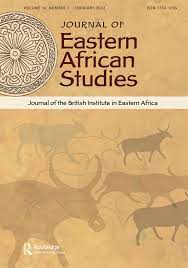Peace without freedom in Eritrea : causes and consequences of the Ethio-Eritrean rapprochement
Journal of Eastern African Studies, 15:1, 2021, p. 23-42.

This article offers an analysis of the causes and consequences of the Ethio-Eritrean rapprochement. The causes are both internal (each side had their reasons) and external (under the influence of the UAE and Saudi Arabia). As for the consequences, the peace served as a catalyst of Eritrea’s reintegration : it boosted bilateral visits, had a limited regional snowball effect, lifted the UNSC sanctions, and accelerated the engagement of multilateral organizations and the EU in Eritrea. However, this reintegration is limited because of the persistent ambivalence of the regime, the degradation of the relations with Saudi Arabia and the US, and the fact that the peace with Ethiopia has stalled. Moreover, there is no peace dividend for the Eritrean population : after a glimpse of freedom when the border opened a couple of months, it is all back to the status quo ante, and even worse in some human rights respects. The conclusion shows the paradoxical nature of a rapprochement that also had negative effects and draws some lessons from the deeper problem explaining the stalled peace, that is institutional imbalance between a totalitarian state and a democratic one.


